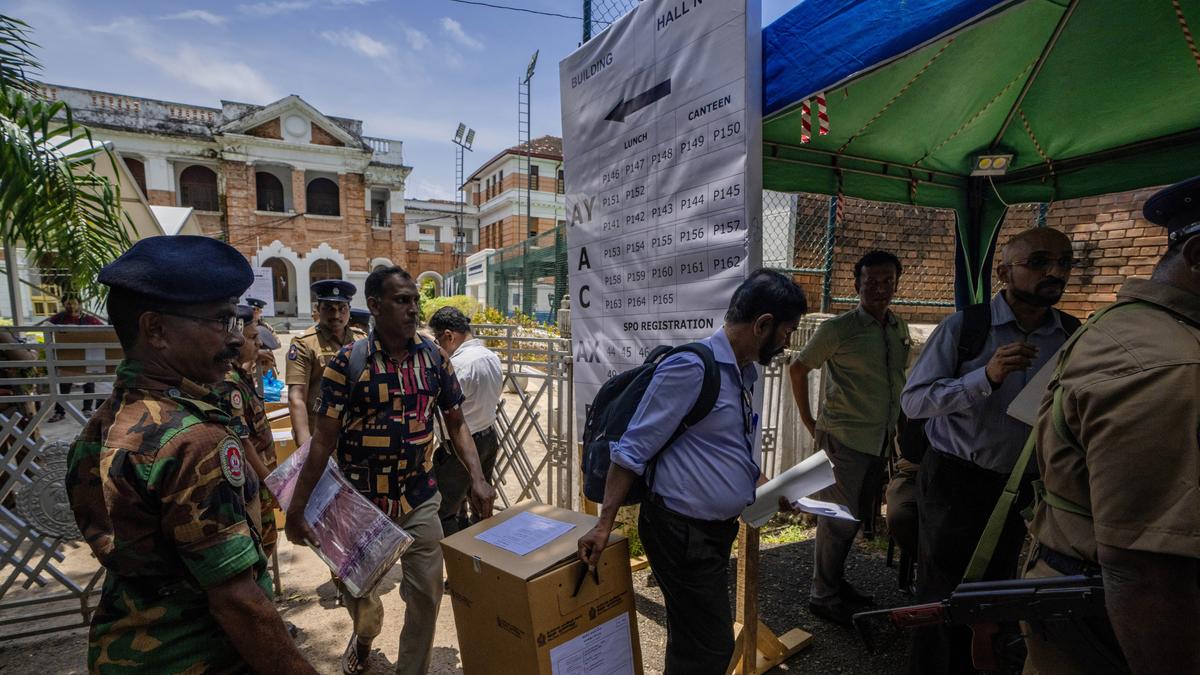
The stakes in Sri Lanka’s ninth Presidential election Premium
The Hindu
Sri Lanka is going to the polls two years after political revolt that was preceded by an economic crisis
Sri Lanka’s ninth Presidential election, which is slated for September 21, is being held under strange circumstances for more than one reason.
The country is going to the polls two years after the country witnessed a tumultuous political revolt preceded by an acute economic crisis. Even in 1953, the rising cost of living, drove the then Prime Minister Dudley Senanayake to step down, after the Left’s massive hartal. But his successor, John Kotelawala, assumed office under much less painful conditions than what Ranil Wickremesinghe faced in July 2022 when Mr. Wickremesinghe became President.
This election also marks a churning that has taken place in the political arena. The United National Party (UNP), one of the established and traditional parties alongside the now-marginalised Sri Lanka Freedom Party (SLFP), is not in the race, even though its leader, Mr. Wickremesinghe is in the fray as an independent, hoping to draw support from a broader political constituency. While the Sri Lanka Podujana Peramuna (SLPP) dislodged the SLFP as a principal player in the 2018 local authorities’ elections, the UNP’s decline was apparent in the 2020 parliamentary elections when the party could obtain only one out of 225 seats, this too in an indirect way, i.e., the National List. Just as the SLPP has walked away with a substantial portion of the SLFP’s vote base, the Samagi Jana Balawegaya (SJB), led by Sajith Premadasa, has done it for the UNP.
Apart from Mr. Wickremesinghe and Mr. Premadasa, there is one more key contender in the fray — Anura Kumara Dissanayake, leader of the home-grown Lefitist party, Janatha Vimukti Peramuna (JVP).
One of the curious elements of the election is that the SLPP, after the 2022 popular uprising, is being viewed as a marginal player. It remains a subject of debate on who the major beneficiary would be in the event of the SLPP’s votebase eroding substantially. There is a perception that the JVP has reaped the political dividend out of the uprising.
There is every likelihood, this time, of the minorities, especially Tamils (those in the north and the east, and in the hill country) not voting en bloc for any one of the principal candidates. This is essentially because of divisions among Tamil parties in rallying behind a particular candidate. Both Mr. Wickremesinghe and Mr. Premadasa are banking on the support of certain Tamil parties. It is for the first time in the Ilankai Tamil Arasu Katchi’s (ITAK) history that party member, P. Ariyanenthiran, has entered the presidential fray, even though prominent Tamil figures had contested the elections earlier. But, Mr Ariyenthiran’s presence, as a “common” and independent Tamil candidate, does not seem to have the full support of his party.
Under the circumstances, it is to be seen whether Mr. Premadasa will repeat what he did in 2019 by bagging 70% of votes polled in the six electoral districts, where ethnic minorities are dominant. (Last time, when as the UNP’s nominee, he secured about 42% of votes across the country.) In fact, in the 2015 presidential election, the victory of Maithripala Sirisena against the formidable and incumbent President Mahinda Rajapaksa, was attributed, among others, to the huge support that he got in the Tamil-speaking areas.













